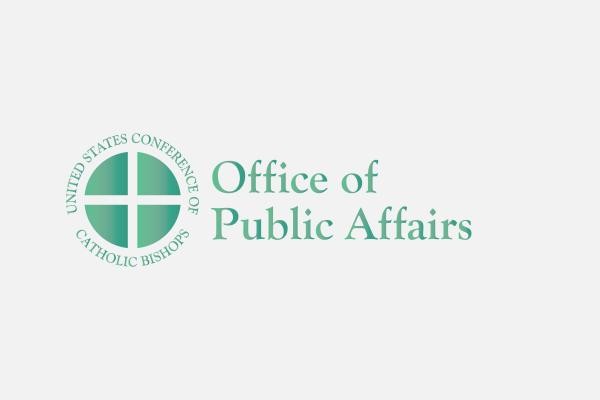Polish National Catholic-Roman Catholic Dialogue Explores Transfer of Clergy, Doctrinal Statement
WASHINGTON—The Polish National Catholic (PNCC)-Roman Catholic Dialogue explored the transfer of clergy and a doctrinal statement at their fall meeting, that took place in Baltimore, November 6-7. Bishop Edward U. Kmiec of Buffalo and Bishop Anthony Mikovsky of the PNCC Central Diocese in Scranton, P
November 24, 2008
WASHINGTON—The Polish National Catholic (PNCC)-Roman Catholic Dialogue explored the transfer of clergy and a doctrinal statement at their fall meeting, that took place in Baltimore, November 6-7. Bishop Edward U. Kmiec of Buffalo and Bishop Anthony Mikovsky of the PNCC Central Diocese in Scranton, Pennsylvania, presided.
The meeting began with a progress report from the Roman Catholic members on a proposal to ask the Holy See if the PNCC could be considered to be in the same position as the Orthodox on two matters. First, PNCC faithful would be allowed to act as godparents at Roman Catholic baptisms in addition to a Roman Catholic. Second, mixed marriages performed in the PNCC without a dispensation from canonical form, even if not lawful, would be considered valid by the Roman Catholic Church. This proposal is under consideration by USCCB committees.
Dialogue members also discussed recommendations to both churches on how to handle cases of clergy transferring from one church to the other. A first draft of such recommendations that draws upon a parallel agreement that already exists in Germany was examined. The draft will be revised on the basis of the discussion and considered once again at the next meeting.
The dialogue also discussed at some length The Declaration of Scranton that was issued by the PNCC bishops last April 28. This text, which was to clarify the PNCC's position on issues for groups that seek to come into full communion with the PNCC, raised questions for the Roman Catholics that were outlined by Msgr. John Strynkowski, Ph.D., a pastor from the Diocese of Brooklyn, New York. The Declaration highlighted divergences between the two churches regarding the teaching authority of the pope, and pointed to a need for further consideration by the dialogue of the Roman Catholic teachings about the Blessed Virgin Mary. The meeting concluded with a discussion of misunderstandings at the local level between the two churches and the best way to deal with them.
Members decided to meet once in 2009 in a longer session than usual, slated for September 28-30.
The Polish National Catholic-Roman Catholic dialogue was established in 1984. Current PNCC members include Bishop Mikovsky (Co-Chairman), Bishop John E. Mack of Washington, Pennsylvania, Very Rev. Marcell W. Pytlarz of New Castle, Pennsylvania, Very Rev. John Z. Kraus of West Allis, Wisconsin, Very Rev. Paul Sobiechowski of Davie, Florida, and Father Robert M. Nemkovich Jr. of Fall River, Massachusetts. Roman Catholic members include Bishop Kmiec (Co-Chairman), Bishop Thomas G. Wenski of Orlando, Florida, Auxiliary Bishop Mitchell T. Rozanski of Baltimore, Auxiliary Bishop Emeritus Matthew Ustrzycki of Hamilton, Ontario, Msgr. Strynkowski, Msgr. Thomas J. Green of the School of Canon Law at The Catholic University of America in Washington, DC, Father Phillip Altavilla, ecumenical officer of the Diocese of Scranton, and Paulist Father Ronald G. Roberson (staff).
The meeting began with a progress report from the Roman Catholic members on a proposal to ask the Holy See if the PNCC could be considered to be in the same position as the Orthodox on two matters. First, PNCC faithful would be allowed to act as godparents at Roman Catholic baptisms in addition to a Roman Catholic. Second, mixed marriages performed in the PNCC without a dispensation from canonical form, even if not lawful, would be considered valid by the Roman Catholic Church. This proposal is under consideration by USCCB committees.
Dialogue members also discussed recommendations to both churches on how to handle cases of clergy transferring from one church to the other. A first draft of such recommendations that draws upon a parallel agreement that already exists in Germany was examined. The draft will be revised on the basis of the discussion and considered once again at the next meeting.
The dialogue also discussed at some length The Declaration of Scranton that was issued by the PNCC bishops last April 28. This text, which was to clarify the PNCC's position on issues for groups that seek to come into full communion with the PNCC, raised questions for the Roman Catholics that were outlined by Msgr. John Strynkowski, Ph.D., a pastor from the Diocese of Brooklyn, New York. The Declaration highlighted divergences between the two churches regarding the teaching authority of the pope, and pointed to a need for further consideration by the dialogue of the Roman Catholic teachings about the Blessed Virgin Mary. The meeting concluded with a discussion of misunderstandings at the local level between the two churches and the best way to deal with them.
Members decided to meet once in 2009 in a longer session than usual, slated for September 28-30.
The Polish National Catholic-Roman Catholic dialogue was established in 1984. Current PNCC members include Bishop Mikovsky (Co-Chairman), Bishop John E. Mack of Washington, Pennsylvania, Very Rev. Marcell W. Pytlarz of New Castle, Pennsylvania, Very Rev. John Z. Kraus of West Allis, Wisconsin, Very Rev. Paul Sobiechowski of Davie, Florida, and Father Robert M. Nemkovich Jr. of Fall River, Massachusetts. Roman Catholic members include Bishop Kmiec (Co-Chairman), Bishop Thomas G. Wenski of Orlando, Florida, Auxiliary Bishop Mitchell T. Rozanski of Baltimore, Auxiliary Bishop Emeritus Matthew Ustrzycki of Hamilton, Ontario, Msgr. Strynkowski, Msgr. Thomas J. Green of the School of Canon Law at The Catholic University of America in Washington, DC, Father Phillip Altavilla, ecumenical officer of the Diocese of Scranton, and Paulist Father Ronald G. Roberson (staff).


